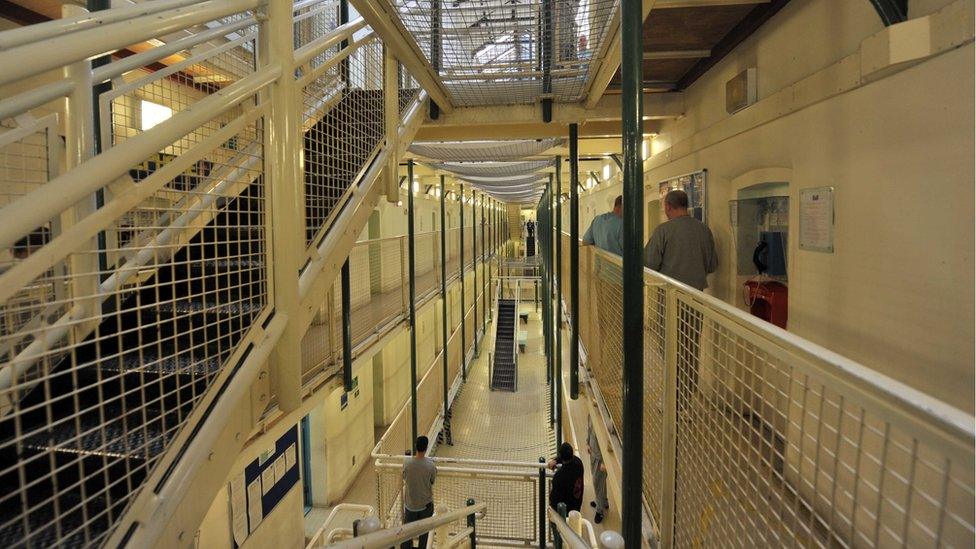Legal highs: Spice addiction 'made me punch myself'
- Published
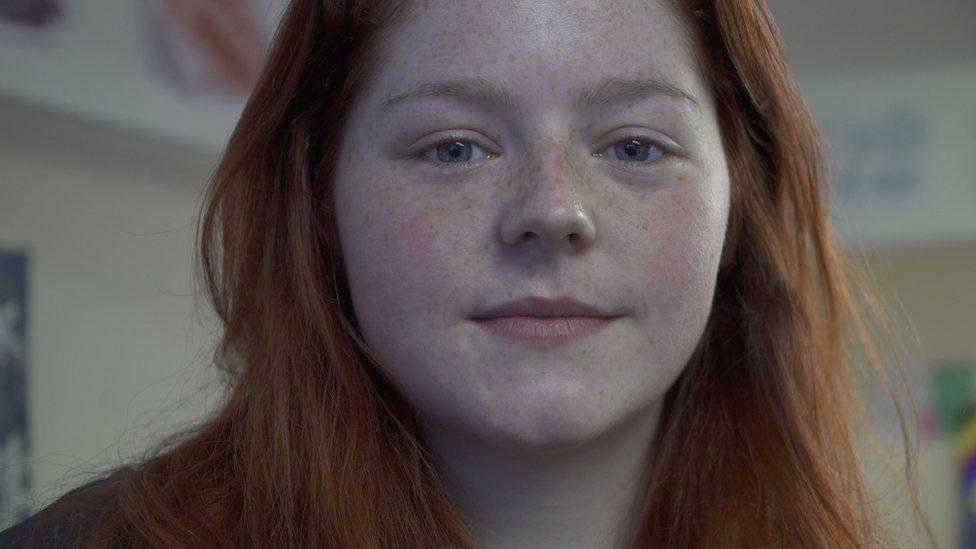
Grace is determined to stay clean of using legal highs in future
Legal highs will be banned across the UK later this month, in a move which the government says will protect young people. But for many, their addictive nature has already taken hold.
Grace has a friendly, intelligent personality and is a gifted artist. But four years ago she became addicted to Spice, a form of synthetic cannabis, and it took control of her life.
The 18-year-old left home after a breakdown in relationships with her family and ended up on the street, living in doorways, squats and tents - wherever she found room.
She started smoking Spice to cope with the cold but then very quickly became hooked. It kept her on the streets but she is now in a hostel.
"My emotional attachment to Spice was ridiculous," she says.
"I've given myself full black eyes from it before, just because I haven't got it and I needed to de-stress myself and calm down, so I can go to sleep without it.
"So I just punched myself in the head repeatedly."
Dean is addicted to Spice - synthetic cannabis
Grace says she has seen people collapsed on the floor within 10 seconds of taking the substance.
"People think, I'll only have a few drags, but you will end up getting addicted. It changes people permanently. I'll never be the same as I was again.
"When you are smoking it, it depends on the person. If you've never had it, a little bit can make you end up barking like a dog and spitting at people."

Psychoactive Substances Act 2016
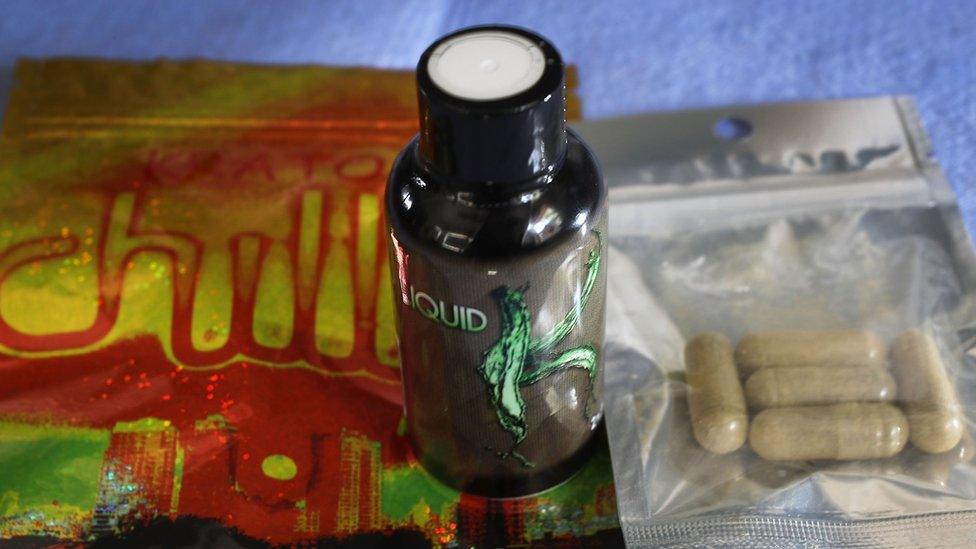
The Psychoactive Substances Act, which comes into force on 26 May, makes it illegal to supply drugs which have a direct effect on mental processes
"Psychoactive substance" means any substance capable of producing a psychoactive effect i.e. if, by stimulating or depressing the person's central nervous system, it affects the person's mental functioning or emotional state
Up to seven years in prison for anyone supplying or producing, or possession with intent to supply
Up to two years in prison for possessing a psychoactive substance in a custodial institution
Prohibition and premises orders, allowing police to shut down shops and online dealers in the UK, with up to two years in prison for those who fail to comply
More than 500 potentially dangerous drugs have already been banned since 2010 under the Misuse of Drugs Act 1971
Legal highs include Spice (synthetic cannabis) Clockwork Orange (herbal incense) nitrous oxide (known as laughing gas) and etizolam (a treatment for insomnia and anxiety)

Grace often visits a drop-in centre called Lifeshare in Manchester, which deals with young people from 16-25-years-old that are homeless or at risk of being homeless.
A stream of young people come through the door asking for help, a bed for the night or even a pack of instant noodles. Staff say noodles are the first thing they ask for, and often it is when they are sat eating them that they'll talk to support workers.
This year the charity has dealt with 300 clients - all young, vulnerable and 95% of them have the same problem: Spice.
Julie Boyle, a support worker for Lifeshare, says she has never seen anything like it.
"It's the most dangerous drug that has caused the most damage, in the shortest space of time, to the most vulnerable communities that we have got. I can't emphasis enough how much of a destructive, horrible drug it is. It's absolutely awful."
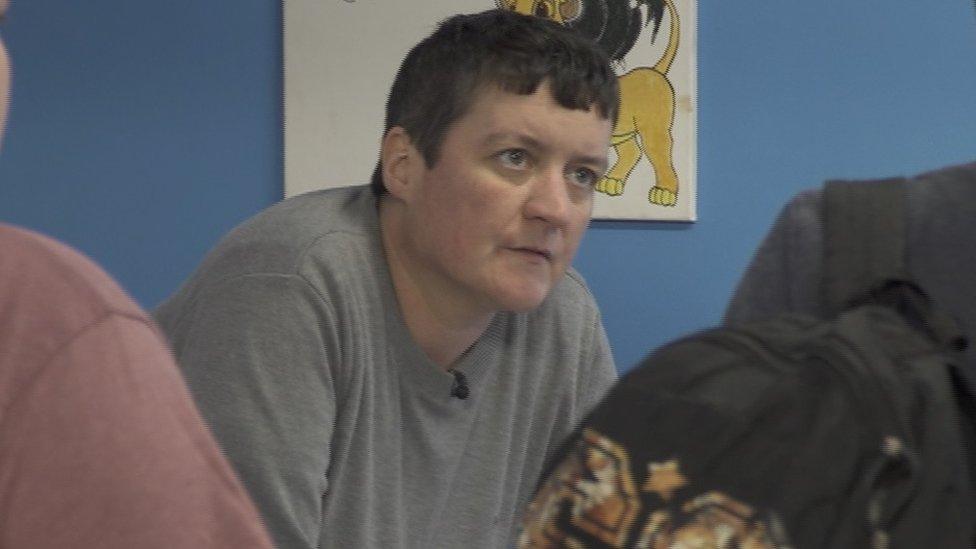
Julie Boyle, of charity Lifeshare, describes Spice as "absolutely awful"
The number of young people under the age of 18 being treated for addiction to legal highs, which are officially known as "new psychoactive substances", has risen by 176% in the last year, from 121 to 334, according to Public Health England.
The drugs are also linked to the deaths of 144 people in the UK in 2014.
The new ban will bring to an end the sale of legal highs on the high streets and will give the police new powers to seize and destroy psychoactive substances, search people, premises and vehicles, and to search premises by warrant if necessary.
But some are already questioning its effectiveness. The Police Federation of England and Wales says a clear definition is needed of what a psychoactive substance is.
"Too narrow of a definition could mean the problem of people getting harmed from these substances continues - while having the definition be too wide could make it too unwieldy," it adds.
"Following the legislative change, we hope the government will do all it can to raise public awareness of the issue, particularly so that shop owners don't fall foul of the law."
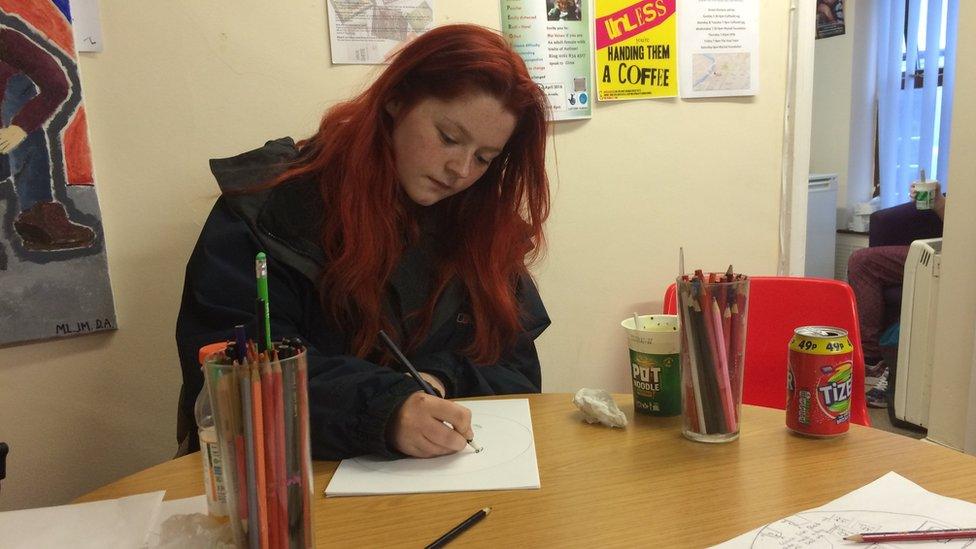
Grace was addicted to Spice but has not used it now for more than three weeks
It also worries that forensic labs currently being used for Misuse of Drugs Act offences "are already under pressure to get an already high workload processed and this will add more work."
But the government says the ban will make the UK the first country in the world to put in place a rigorous system of testing to demonstrate that a substance is capable of having a psychoactive effect.
Back at the drop-in centre in Manchester. 24-year-old Dean disappears every 15 minutes - he's popping out for his next hit. Last year he almost died when his heart stopped after smoking a £5 bag of Spice. But he's still using.
"I got hooked on it the first time I ever tried it. My mate said 'hey I've got a spliff for you', I had three, four drags, and I was stuck up against a wall for two hours.
"Ever since that day I haven't stopped smoking it. I hate the fact I'm on it. I wish I never heard of it, I wish I never touched it."
He says when he tried to come off the substance, he got stomach ache and threw up in pain every eight hours.
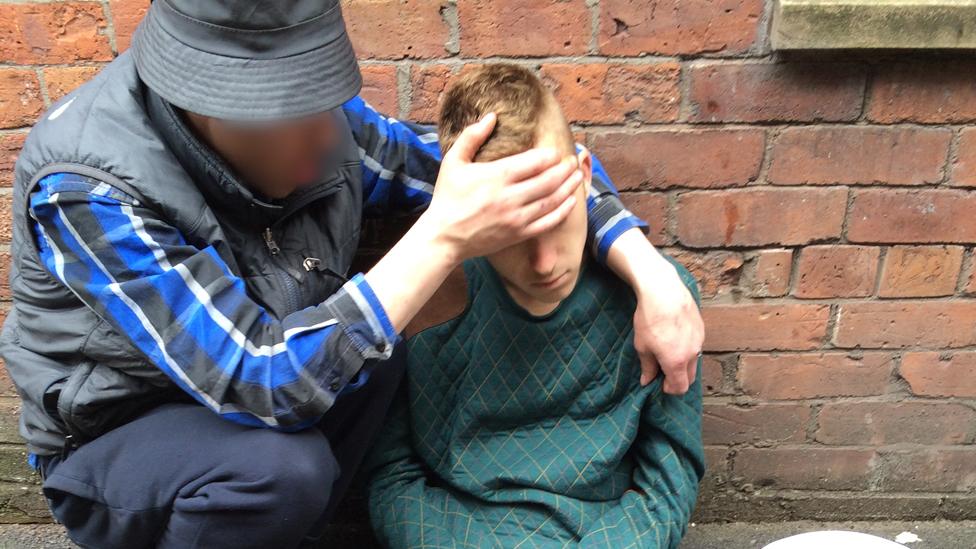
Dean had a cardiac arrest last year while smoking a bag of Spice
However, the staff at Lifeshare have helped some kick the habit. Grace says for the first time in a long time, she is hopeful. She has been off Spice for 22 days.
"It's difficult, but not as difficult as it's been in the past. A lot of the rattling is in your head, but you keep yourself calm and think no, it'll be ok, I'm going to get through this."
The teenager is now on a mission to help her friends get off it too. This summer she is planning a "Spice Free" BBQ with one rule - they cannot get high or be high that day.
When asked if it would have made a difference if Spice was banned when she started taking it, Grace sighs.
"It might affect people's original decision to start using it but after you have got hooked on it, it doesn't have any play on it at all.
"You are not bothered by whether it's legal or safe, because it's doing the trick for you… so you keep taking it."
- Published26 May 2016
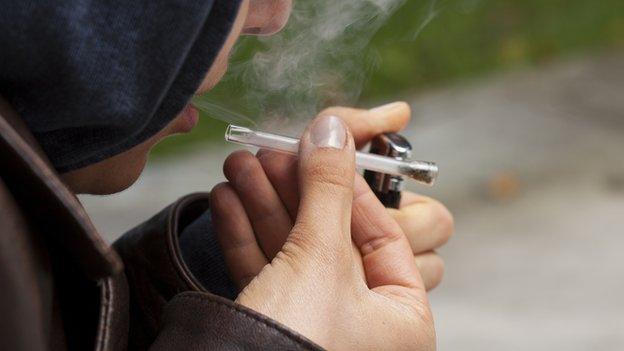
- Published10 May 2016
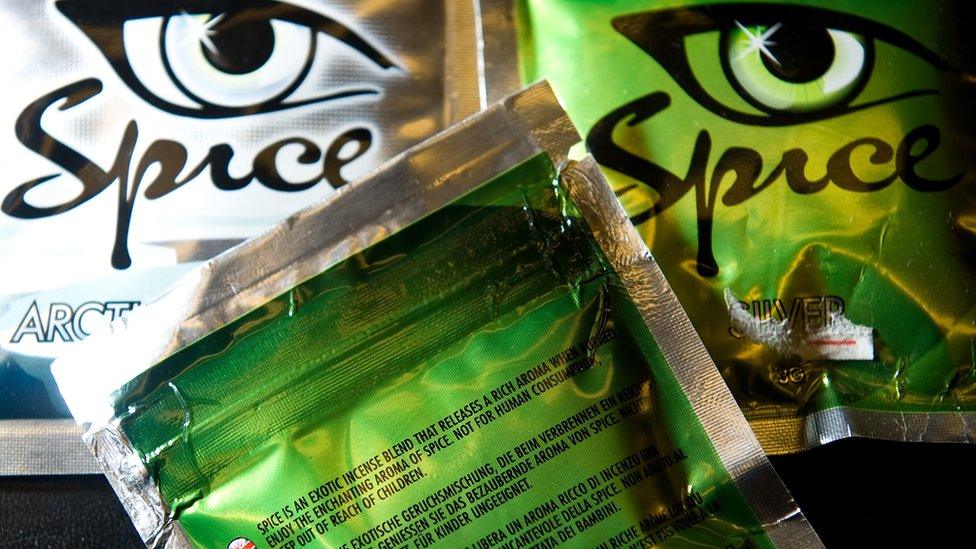
- Published10 May 2016
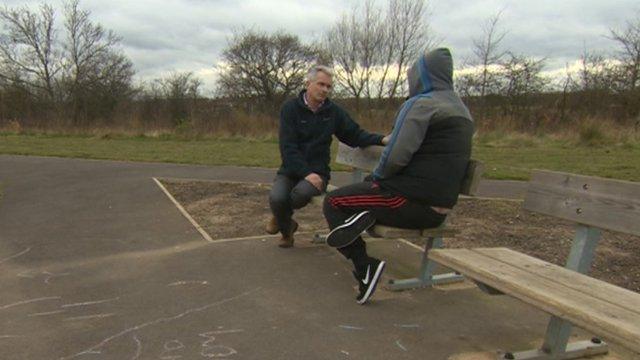
- Published2 May 2016
